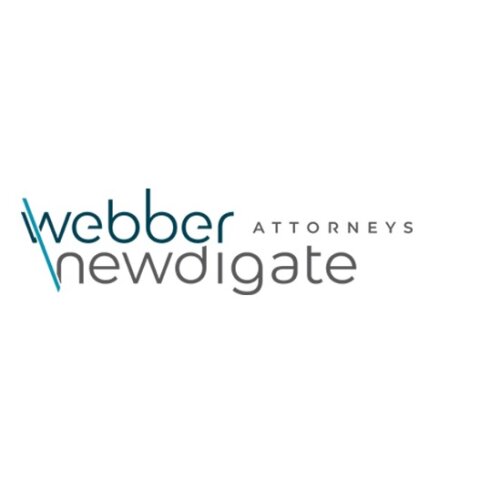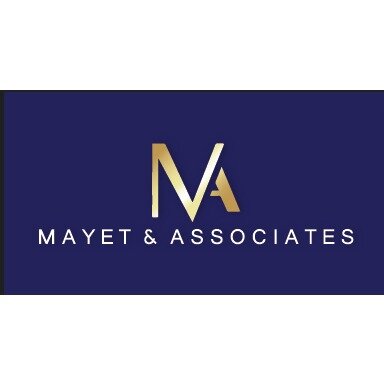Best Copyright Lawyers in Lesotho
Share your needs with us, get contacted by law firms.
Free. Takes 2 min.
Or refine your search by selecting a city:
List of the best lawyers in Lesotho
About Copyright Law in Lesotho
Copyright law in Lesotho is designed to protect the rights of creators over their original works. The law grants authors exclusive rights to their creations, allowing them to control the use, reproduction, distribution, and display of their works. This includes books, music, films, photographs, software, and other creative items. The goal of copyright is to incentivize creativity by ensuring that creators can benefit economically from their work.
Why You May Need a Lawyer
Seeking legal advice for copyright issues is essential in several situations. If you are an author or creator facing potential infringement of your work, a lawyer can help enforce your rights. Similarly, if you've been accused of infringing someone's copyright, you will need legal guidance to understand your position and defend yourself. Lawyers are also instrumental in negotiating licenses and contracts related to copyrighted works, ensuring that your interests are protected.
Local Laws Overview
Lesotho's copyright laws are primarily governed by the Industrial Property Order of 1989 and its subsequent amendments. This legal framework outlines the rights of copyright owners, conditions for protection, and penalties for infringement. It also sets the duration of copyright protection, generally lasting the lifetime of the creator plus 50 years. Special provisions apply for works created by multiple authors and for certain types of works like audiovisual productions.
Frequently Asked Questions
What works are protected under copyright in Lesotho?
Original works of authorship, including literary, musical, dramatic, and artistic works, are protected under Lesotho's copyright laws.
How long does copyright protection last in Lesotho?
Typically, copyright protection lasts the lifetime of the creator plus an additional 50 years after their death.
Can I use a copyrighted work without permission in Lesotho?
Using a copyrighted work without permission may constitute infringement unless it falls under exceptions such as fair use or educational purposes.
What is fair use under Lesotho’s copyright law?
Fair use in Lesotho includes using copyrighted materials for purposes like criticism, comment, news reporting, teaching, scholarship, or research.
How do I register a work for copyright protection in Lesotho?
Copyright typically exists automatically upon the creation of the work in Lesotho, and formal registration is not required.
What should I do if I suspect copyright infringement?
Consult a lawyer to evaluate your case, gather evidence, and explore possible legal actions such as sending a cease-and-desist letter or filing a lawsuit.
Is software protected under copyright law in Lesotho?
Yes, computer software is considered a literary work and is thus protected under copyright law.
Can moral rights be transferred in Lesotho?
Moral rights, such as the right of attribution and the right to object to derogatory treatment of the work, are generally inalienable and cannot be transferred.
What are the penalties for copyright infringement in Lesotho?
Penalties can include fines, injunctions, and damages to compensate the rights holder, as well as seizure of infringing goods.
How are copyright disputes resolved in Lesotho?
Disputes can be resolved through negotiation, mediation, or legal proceedings in the Lesotho courts.
Additional Resources
For further guidance, you may consult the Lesotho Copyright Office, the Ministry of Law and Constitutional Affairs, or local organizations specializing in intellectual property rights. These bodies provide valuable information and support on copyright matters.
Next Steps
If you need legal assistance in copyright matters, begin by gathering all relevant information and evidence related to your case. Contact a qualified lawyer who specializes in intellectual property law in Lesotho. Arrange a consultation to discuss your situation, understand your rights, and explore potential solutions or defense strategies.
Lawzana helps you find the best lawyers and law firms in Lesotho through a curated and pre-screened list of qualified legal professionals. Our platform offers rankings and detailed profiles of attorneys and law firms, allowing you to compare based on practice areas, including Copyright, experience, and client feedback.
Each profile includes a description of the firm's areas of practice, client reviews, team members and partners, year of establishment, spoken languages, office locations, contact information, social media presence, and any published articles or resources. Most firms on our platform speak English and are experienced in both local and international legal matters.
Get a quote from top-rated law firms in Lesotho — quickly, securely, and without unnecessary hassle.
Disclaimer:
The information provided on this page is for general informational purposes only and does not constitute legal advice. While we strive to ensure the accuracy and relevance of the content, legal information may change over time, and interpretations of the law can vary. You should always consult with a qualified legal professional for advice specific to your situation.
We disclaim all liability for actions taken or not taken based on the content of this page. If you believe any information is incorrect or outdated, please contact us, and we will review and update it where appropriate.
Browse copyright law firms by city in Lesotho
Refine your search by selecting a city.









